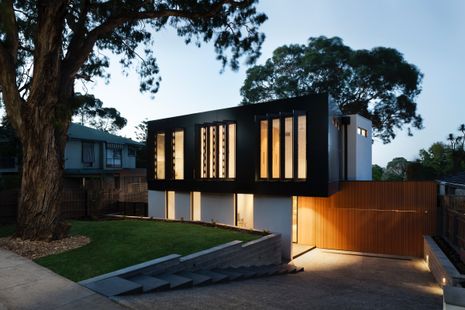|
|
|
|
|
Joint Ownership With Government
The Federal Government’s new Help to Buy Scheme is expected to start early next year.
The scheme is similar to a “shared equity” scheme which operates in the United Kingdom, which has 200,000 homes under shared ownership.
The details of the Australian scheme were announced last week. With the Government holding up to 40% of the ownership of new homes and 30% of existing homes.
In Australia applicants can only have a maximum salary of $90,000, or $120,000 for couples and they require a 2% deposit.
There are 40,000 places allocated in the scheme during the first four years.
There will be different price points for homes eligible to be purchased under the scheme depending on which state they are in and whether they are in capital city or regional areas.
UNSW associate professor, Mark Humphery-Jenner, says the scheme “may work to a degree” if it is carefully managed, although he does not believe it will improve supply issues substantially.
|
|
|
|
|
|
|
|
ANZ Tips House Prices Will Rise
House prices are tipped to rise by up to 6% by the end of this year according to predictions by ANZ.
ANZ Senior economist Adelaide Timbrell says the impact of housing shortages and tight rental vacancies are outweighing any impact of interest rate rises.
“Forward indicators including housing finance approvals and auction clearance rates suggest further housing price increases in the near term,” she says.
Timbrell predicts growth will slow to about 3% in 2024, impacted by rising unemployment and the lagging impact of past rate hikes, as well as slower population growth.
“We (then) expect housing prices to reaccelerate to around 4% to 5% in 2025, supported by a modest cut in interest rates,” she says.
Australian Bureau of Statistics (ABS) lending indicators data, shows the value of total housing loan refinancing remains high at $20.2 billion in June 2023.
ABS head of finance statistics Mish Tan says borrowers are continuing to switch lenders, looking for better deals as interest rates rise.
|
|
|
|
|
|
|
|
Home Buyer Guarantee
First-home buyers using the federal government’s low-deposit scheme are borrowing less and achieving good returns, new analysis shows.
Buyers who purchased with the Home Buyer Guarantee Scheme, which helps buyers with a deposit as low as 5%, can expect steady equity growth, according to a new report by the National Housing Finance and Investment Corporation and the Commonwealth Bank.
The report shows the average borrower using the scheme also has seen their equity grow by $82,000 since 2020.
NHFIC head of research, Hugh Hartigan, says first-home buyers are still keen to buy despite the challenging interest rate environment.
“It is encouraging that the (average) equity position of Home Guarantee Scheme participants appears to be holding up,” he says.
The average deposit paid by first home buyers using the scheme is $36,400, considerably lower than the rest of the first home buyer market, which is paying an average deposit of $159,000.
The average loan amount under the scheme has increased 4.7% since 2020. |
|
|
|
|
|
|
|
New Housing Push
The Federal Government is promising to build 1.2 million homes over five years as part of the National Planning Reform Blueprint, although it still faces some opposition from The Greens.
Governments of all levels are looking for solutions to the housing crisis.
Building approvals have reached historic highs but there is a gap between approved homes and actual completions.
Between June 2020 and 2021, more than 221,000 new homes were approved but only two-thirds of these were built, as labour and materials shortages affected the industry.
While Governments are looking for solutions some analysts believe it will be difficult for private sector builders to ramp up production.
The private sector produces about 98% of new builds, but it is facing its own challenges, with a number of major builders going broke in the past year.
Analysts say more focus needs to be put on how state and local governments bring more land for new and affordable housing to the market. |
|
|
|
|
|
|
|
8-Star Homes Coming Fast
Australian housing developer, AV Jennings hopes to deliver 8-star energy efficient homes within just two months by embracing new technology.
CEO, Phil Kearns, says its joint venture with tech innovator Pro9, means it will introduce its energy efficient walling system in Australia in March next year, cutting down build times substantially.
“For us, certainly in the short term, we’ll still do some traditional construction methods. Potentially over time, we could do 100% of our homes under this format,” Kearns says.
“So far, the results that we’ve had across Sydney, Brisbane and Melbourne have been exceptional.
Kearns says they have combined their knowledge on how to build with their knowledge and technological innovation around the materials to bring together a really good housing solution.
“One of the by-products of looking at the whole prefab area was the fact that the materials used and the way the house is put together creates a very sustainable energy efficient result.” |
|
|
|
|
|
|
|
|
Quote Of The Week
“Forward indicators including housing finance approvals and auction clearance rates suggest further housing price increases in the near term.”
ANZ Senior economist Adelaide Timbrell
|
|
|
|
|
|
|
|
|
|




